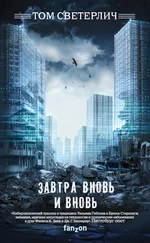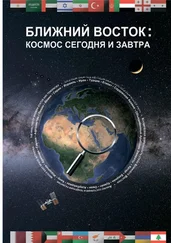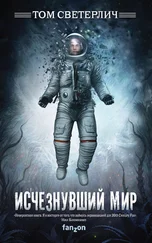“Dominic, I can help you,” she says.
“Help me? Or help Simka?”
“I don’t know if we’ll be able to help Simka,” she says, “but there’s something I can show you that we might be able to use—”
“Use how? What do you mean?”
“I’ve kept things hidden for far too long,” she says. “I was mistaken, Dominic. I want to face this, I want to help end this suffering—”
Something’s different about her, something opening—a complex comfort grown between us, present in a way that I hadn’t yet felt, less diffuse and fragile, like we’d been describing a relationship to each other these past few months but suddenly find ourselves together in one.
“In a day or so we have to go on a hike. It will be harder than the hikes we’ve been taking recently,” she says. “You should rest up, rest your feet. I’ll need to buy some gear we don’t have—I might need to drive for it, maybe as far as Cleveland. I’ll go tomorrow morning, but I shouldn’t be gone more than a day—”
We share a tent together. We’re in separate sleeping bags but she reaches for my hand and holds my arm around her. My body feels like liquid fire holding her and I pull her close but we never kiss. Instead, I let my face rest against her hair like I’m lost in a veil of flowers. It’s rained in the night. I wake up earlier than Albion and watch her sleep. I slip from our tent. Gray light hangs throughout the forest. I hear a tread and stop—a tawny deer twenty or thirty yards from me looks up. He’s unconcerned, and lopes away through the fog.
—
Three days pass, we wake in the darkness before dawn.
“Good morning,” she whispers.
Adware at half-light, the dashboard clock flips to 3:47 a.m. Albion’s sitting on the edge of my bed, silhouetted by the hallway light. “Are you awake?” she says.
“I’m awake—”
“Coffee’s brewing, and I’ll make some eggs.”
Albion’s only packing prewrapped food for our trip—protein bars, dehydrated meals, enough for a few days if needed, even though we’re planning on being home by tomorrow afternoon. We’ve divvied up the weight of our gear, but she says my main job is to lug water—we can’t stint ourselves on water, she says—so my frame pack will carry the bulk of our supply plus a ClearSip purifier. I load the Outback while Albion brews a second pot of coffee and fills two thermoses. When she joins me, she hands me a bouquet of flowers cut from our yard—dahlias, it looks like, deep violets, bundled with sprigs of yellow and miniature sunflowers.
“These are for Theresa,” she says.
We leave before dawn and watch the sunrise break violet as we drive, burning the ridges of clouds like they’re waves of fire, pink and tangerine. Coming down 65 toward Pittsburgh, running alongside tracks cluttered with the iron hulks of trains, graffiti-bright boxcars and flatbeds loaded with heavy equipment—hunter’s-orange bulldozers and excavators—and car after car strapped with canisters of radioactive waste. Canisters filled with glass, if I understand the process correctly—by-product hauled off for burial in reinforced cement sarcophagi, sites dotting Pennsylvania, West Virginia, Ohio. Our road follows the tracks, the tracks hugging the course of the Ohio River, past the first of the tri-state purification plants straddling the water—zeolite dumps built beneath one of the steel-span bridges, the water churned and pumped, filtered. The facility looks like a shopping mall.
“Will I see her body?”
“No, you won’t see her,” says Albion.
“I don’t know what to expect—”
“There aren’t bodies, if that’s what you’re imagining,” she says. “You may see some remains specifically where I’m taking you, but there aren’t bodies anymore—”
Of course, she’s right—staring out the window at the ripple of hills, remembering sensationalistic streams that leaked after the blast, of bulldozers rolling bodies and other debris into mass burial ditches. The authenticity of those streams was disputed—I don’t know if any of that was even true—but I’ve always imagined Theresa’s body rolled with those others, imagined her body somehow still whole, buried in a shallow grave, naked with the naked corpses of strangers, but I know it’s not true, it’s not true.
“There were no funerals,” I tell her. “I think sometimes—when I imagine how many people died, I can’t help but think of their bodies—”
“It won’t be like that at all,” says Albion. “Even right after the blast, right after I came from the tunnel, my memory isn’t of bodies—”
“Where did they go?” I ask her.
“The way they died,” says Albion. “Most were cremated—by the blast, I mean. There was so much ash, at first—buildings, trees, people. I remember being covered with ash. Ash in my hair, my eyes. Breathing ash. I still remember the taste of ash. Anyway, even if there was a body, it’s been ten years, Dominic. No, most of what we walk through will look like very young woods—or heavy growth like weeds and wildflowers. You’ll probably recognize some things—”
Twenty minutes or more before we pass another car on this road, a white pickup with flashing yellow lights heading in the opposite direction—we don’t see anyone else until we come to an intersection with a BP and a McDonald’s, the McDonald’s already bustling, a few cars queued in the drive-through and several tables filled. Jingles in my Adware, spinning hash browns and Egg McMuffins. I don’t know what I was imagining the approach to PEZ to be like, something anonymous, maybe, something private. The McDonald’s is absurdly bright, like the architecture’s made of light—Albion sees me looking over and asks if I need to stop, but I tell her I’m all right.
“Who are all they?” I ask her.
“I’m guessing they’re connected with the cleanup crew,” she says. “Independent contractors. PEZ Zeolite—”
“I’ve never been back,” I tell her once the McDonald’s has disappeared behind us and it’s easier to believe we’re the last people left on earth.
“What we’re doing is illegal,” she says. “And, anyway, there are only a few places to access PEZ. You have to have an idea of what you’re doing. People don’t just come here to visit—there aren’t any memorials, not yet. There was no reason for you to come back until today—”
This stretch of 65 used to be desolate, oddly active now because of PEZ Zeolite—makeshift signs line the road: WARNING. SLOW. CONSTRUCTION VEHICLE ENTRANCE. We pass PEZ Zeolite’s main campus, buildings that look like small airplane hangars and administrative offices, enough piles of what looks like sand to make it seem like we’re passing through acres of dunes incongruously planted in Pennsylvania. Heavy machinery plies the dunes, yellow trucks with tires as large as our car, the whole place a dust haze of sand. Albion runs her wipers with fluid to smear away powder from the glass. Belches of fire in the distance—the vitrification plants. We get stuck behind a convoy of dump trucks, each one mounded with that grayish sand.
“This is going to slow us down,” she says, and I see her eyes scan, searching in her Adware for alternate routes. Eventually we turn off 65 onto a winding side road overgrown with trees—Camp Horne Road, bracketed by long-defunct houses, chapels and schools, many of the structures partially collapsed, windows broken. The pavement’s cracked, huge gaps devouring our tires. We come to a checkpoint, the first we’ve seen. Nothing but an abandoned kiosk with a crossbar lowered across the road. A sign’s posted:
MILITARY ZONE
DANGER
TRESPASSERS WILL BE PROSECUTED
—
Albion pulls off the road, tires sinking in soft grass. She drives around the crossbar and pulls back onto the road. We pass another military checkpoint, this one with a raised gate—Albion says the only checkpoints that matter are the PEZ Zeolite checkpoints on direct access roads closer to the city. The military abandoned this place years ago—after cases of thyroid cancer spiked among the soldiers stationed here. We pull onto what was once a major artery into the city, 279, but the road is extremely poor—rolling bramble and chunks of tar, swathes of shredded blacktop and greenwood trees and waist-high grass. Albion pulls off the road and parks in a thicket of brush so our car won’t be too obvious if someone were to pass through.
Читать дальше
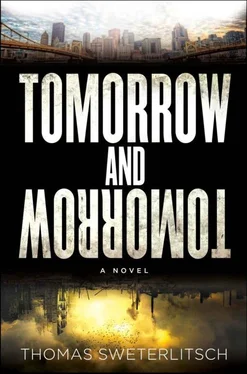

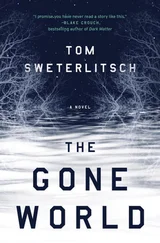
![Том Светерлич - Завтра вновь и вновь [litres]](/books/401288/tom-sveterlich-zavtra-vnov-i-vnov-litres-thumb.webp)
![Том Светерлич - Исчезнувший мир [litres]](/books/420722/tom-sveterlich-ischeznuvshij-mir-litres-thumb.webp)

